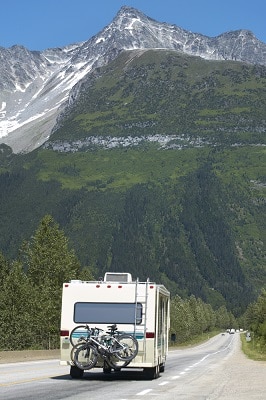
What Temperature Does RV Wax Melt?
Keeping your RV in a good state is a must for all RV users, not just on the inside but also on the outside, it’s the first impression it gives to people and you don’t want to be driving around in an RV full of stains and scratches, since it will give a really bad appearance and you deserve something better.
Sometimes washing your RV in a traditional way will do the basic job but it will only do so much. That’s why there are other options to maintain your RV and protect it in many ways. One of these options is wax, which protects the RV’s exterior paintwork from contaminants, rain and UV rays, preventing it from wearing away and prolonging its original shine.
There are 2 types of waxes for vehicles, natural and synthetic, each has its advantages over the other in terms of ease of application, durability, and shine.
Natural Waxes
Natural waxes are products where the main ingredient is a processed wax but comes from a natural source, such as beeswax (Animal) or carnauba wax (Vegetal). Carnauba is the most resistant natural wax known. It is a resin produced by the Copernicia Cerifera palm tree. Carnauba dries and achieves a deep, natural shine superior to any other wax. This substance forms a hard shell in your RVs water-repellent finish. This layer usually lasts between 3 and 6 months depending on the use of the vehicle. The other advantage of carnauba wax is that it is permeable to air, which means that air can pass through the shell.
Synthetic Waxes or Sealants
Are those made of polymers that are composed of thousands of synthetic particles that are intertwined with each other? These Waxes or Sealers are manufactured in Laboratories. The greatest benefit of synthetic waxes is their durability, as their synthetic chemistry makes them more resistant to temperature, humidity, water and UV rays. In addition, synthetic sealers are very easy to apply and remove because they are less hard than natural waxes and less expensive. The duration of the synthetic wax or sealant is usually between 4.5 to 9 months depending on the care and use of the vehicle. They are preferred by professional retailers as they can be applied by machine or by hand. These Synthetic Waxes can come in various presentations in paste, creams or liquids. Many RV lovers first use a synthetic sealer and finish one last step with a natural wax finish. The result is a luxurious gloss, which will last much longer than traditional wax.
There are also many external factors that will influence how fast the wax melts and lasts in your RV, some of these variables can be type and color of the paint your RV has, weather conditions when it was applied, as well as environmental conditions while you travel, how often you wash your RV and what brand of wax you use which is usually related to the quality.
Related Video:

